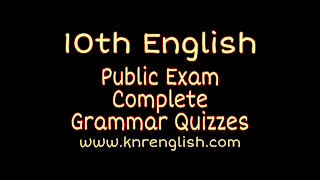TOEFL Junior is an English language proficiency test designed for younger learners, typically aged 11 to 15 years old. The test assesses their ability to understand and use English in academic and everyday contexts. The vocabulary section in the TOEFL Junior test aims to evaluate the test-taker's knowledge and understanding of various English words and their meanings. Here's a description of the TOEFL Junior Vocabulary section:
Vocabulary Range: The TOEFL Junior Vocabulary section tests a wide range of words, including common and academic vocabulary. Test-takers will encounter words they might encounter in school, social settings, and academic environments.
Word Types: The vocabulary section includes various word types, such as nouns, verbs, adjectives, adverbs, prepositions, conjunctions, and more. This ensures that students are familiar with different parts of speech and their usage.
Contextual Understanding: Test-takers will encounter words in meaningful contexts, such as sentences and short passages. This approach helps assess their ability to understand how words are used in real-life situations.
Synonyms and Antonyms: The test may require students to identify synonyms (words with similar meanings) and antonyms (words with opposite meanings). This challenges students' depth of understanding and knowledge of word relationships.
Multiple-Choice Format: The TOEFL Junior Vocabulary section is typically presented in a multiple-choice format. Test-takers will have to choose the correct meaning of a word from a list of options.
Sentence Completion: Some questions may involve completing sentences with the appropriate vocabulary word. This assesses students' ability to use context clues to fill in the missing word.
Pictures and Illustrations: In the younger age groups, pictures and illustrations may be used alongside words to help students understand the meaning of the vocabulary being tested.
Incremental Difficulty: The test usually presents words in order of increasing difficulty. This allows the assessment of a student's vocabulary skills progressively.
Tips for Preparing for the TOEFL Junior Vocabulary Section:
Read Regularly: Encourage students to read books, articles, and other English materials to expand their vocabulary naturally.
Learn Word Families: Teach students word families (words derived from the same root) to help them recognize related words and understand their meanings better.
Use Flashcards: Create flashcards with words on one side and definitions on the other. Regular review of these cards can be an effective study method.
Practice in Context: Have students practice using new vocabulary words in sentences and short paragraphs to reinforce their understanding of word usage.
Take Practice Tests: Utilize official TOEFL Junior practice tests and sample questions to familiarize students with the test format and assess their progress.
Overall, the TOEFL Junior Vocabulary section aims to assess a student's grasp of English words and their ability to use them appropriately in various contexts. By preparing systematically and practicing regularly, students can improve their vocabulary skills and perform well on this section of the TOEFL Junior test.


















